Hantei Judo Term Explanation
Share
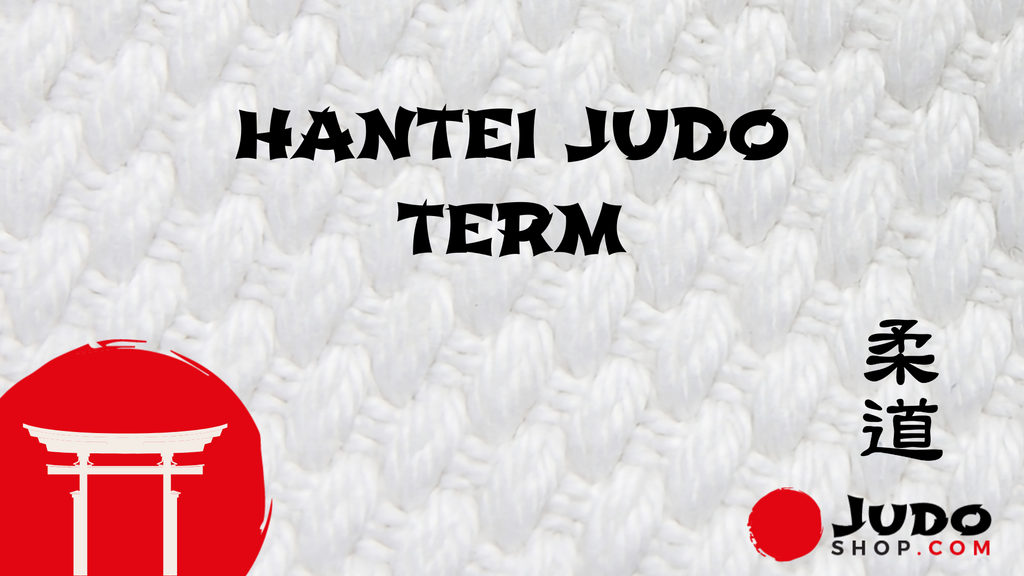
Contrary to popular belief, the term 'Hantei' in Judo is not just a simple decision-making process.
It holds the power to determine the winner in a tie score match. The referee and corner judges made a judgment by considering factors like aggression, control, and scoring attempts.
However, since January 2013, Hantei has been replaced by the 'Golden Score' system with no time limit.
This article delves into the significance of Hantei and evolution within the world of Judo.
Key Takeaways
- Hantei was a term used in Judo to refer to the referee's call for a decision or judgment in a contest when the scores are level at the end of a match.
- Hantei was used as a decision-making process to determine the winner of a match in the event of a tie score at the end of regulation time.
- The Hantei system was replaced by the Golden Score system in 2002, which introduced an overtime period without a time limit.
- As of January 2013, the Hantei system has been completely removed from Judo scoring, and the Golden Score system continues until a judoka scores through a technique or if the opponent is penalized.
What Was Hantei in Judo
Hantei in Judo refers to the referee's call for a decision or judgment in a contest when the scores are level at the end of a match.
Hantei is historically significant in Judo and has been used to determine winners in tied matches.
It has benefits, such as providing a fair method of determining winners and allowing for strategic thinking.
However, controversies surrounding Hantei have arisen, questioning its objectivity and the evolution of judging criteria.
The impact of Hantei on judo athletes' mental game is also worth considering. In modern judo, video replays play a role in Hantei's decisions.
How Is Hantei Used in Judo Matches
In Judo matches, the referee and corner judges observe the competitors' performance to decide when the scores are tied at the end of the match.
This decision-making process is known as Hantei.
Hantei was replaced by the Golden Score system in 2002, which has no time limit and continues until a judoka scores through a technique or if the opponent is penalized (Shido).
The referee and corner judges play a crucial role in the Hantei process, as their majority decision determines the winner.
However, objectivity issues have been raised regarding Hantei, leading to the implementation of the Golden Score system.
The removal of Hantei in 2013 significantly impacted Judo matches, with the current system focusing on scoring through techniques and penalties.
The Transition From Hantei to Golden Score
The transition from the Hantei system to the Golden Score system in Judo matches significantly changed how winners are determined in the event of a tie score.
-
Pros and cons of the hantei system: Some argued that it allowed for subjective judgments, while others appreciated the human element it added to the decision-making process.
-
Impact of the transition to the golden score system: The introduction of the Golden Score brought more objectivity to determining the winner, reducing the reliance on subjective judgments.
-
Comparison of hantei and Golden Score regarding fairness: The Golden Score is considered fairer due to its reliance on scoring techniques rather than subjective judgments.
The Role of the Referee and Corner Judges in Hantei
The referee and corner judges were crucial in the Hantei process in Judo matches. They could decide when a match ends with a tied score.
Objectivity is important in Hantei to ensure fairness in scoring. The effectiveness of the Golden Score system has impacted the role of Hantei, and the removal of Hantei has led to the evolution of judo scoring systems.
See full list of Judo terms here.
The Removal of Hantei and the Current Scoring System in Judo
After removing Hantei, Judo introduced a new scoring system to determine the winner in the event of a tie score at the end of regulation time.
The Golden Score system, which replaced Hantei, has been praised for its objectivity and fairness.
Strategies for success in Golden Score matches include maintaining stamina and persistence and capitalizing on opportunities to score.
The removal of Hantei has also had implications on Judo training and tactics, as athletes now focus more on achieving decisive victories rather than relying on a judge's decision.
Frequently Asked Questions
How Is Hantei Different From Hansoku-Make in Judo?
Hantei is a decision-making process used in Judo when a match ends in a tie. The referee and corner judges judge based. It is different from hansoku-make, which is a penalty leading to disqualification.
What Factors Do the Referee and Corner Judges Consider When Making a Hantei Decision?
The referee and corner judges consider technical criteria, tactical considerations, and scoring techniques when making a Hantei decision in Judo.
They allocate points based on their observation to ensure fairness despite the potential impact of crowd reactions. Training prepares them for hantei situations.
Can a Competitor Receive a Hansoku-Make Penalty During a Hantei Decision?
Yes, a competitor can receive a hansoku-make penalty during a hantei decision. If a judoka commits a serious violation of the rules, they may be disqualified, and their opponent automatically wins the match.
How Often Were Hantei Decisions Used in Judo Matches Before the Introduction of the Golden Score System?
Before introducing the Golden Score system, hantei decisions were used in Judo matches to determine the winner in the event of a tie score. The prevalence of hantei findings varied in different weight categories.
What Led to the Removal of Hantei From Judo Scoring in 2013?
The removal of Hantei from Judo scoring in 2013 was due to controversy surrounding its use. Critics argued that subjective judgments by the referee and corner judges led to unfair outcomes and undermined the sport's objective scoring system.
Conclusion
In a twist of fate, the once-decisive Hantei system in Judo has been replaced by the never-ending Golden Score.
No longer will referees and corner judges have the power to determine a winner based on their observations. Instead, matches will continue indefinitely, like a suspenseful dance with no finale in sight.
The era of Hantei has ended, leaving Judo competitors to rely solely on their skills and stamina to claim victory.
Related Posts
-
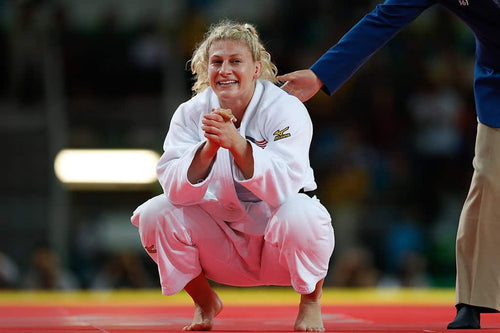
Kayla Harrison's Judo Journey - Judo Champion Turned MMA Powerhouse
Kayla Harrison is a groundbreaking American judoka who made history by becoming the first American woman to win an Ol...
-

Judo Atlanta - List of Judo Clubs in Atlanta area
In Atlanta, you can find excellent judo clubs such as Atlanta Judo Midtown and Black Ice Fitness where you can train...
-

Guram Tushishvili Disqualified - JUDO DRAMA with Teddy Riner
Guram Tushishvili Disqualified - Unsportsmanlike Behavior to French Judoka Teddy Riner Leads to Disqualification fro...
-

Yeldos Smetov - Judoka Profile
Yeldos Smetov, a name synonymous with excellence in judo, has carved out an illustrious career that stands as a beac...
-

Judo Olympics 2024 Results - Gold, Silver, and Bronze Medalists
The Judo Olympics 2024 Results are eagerly anticipated as the Paris Games approach, promising a thrilling display...
-

Judo For Self Defense - Here Is Why Is Judo Best For Self-Defense
Judo For Self Defense packs a punch. This martial art, born in Japan, turns attackers' strength against them. No nee...
-
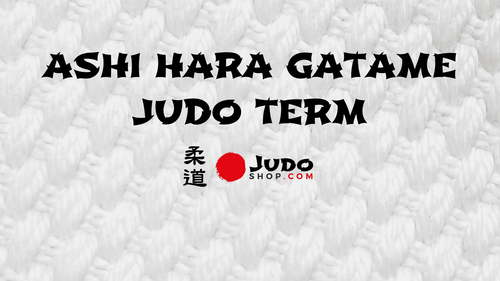
Ashi Hara Gatame - Judo Term Explained
Ashi Hara Gatame is a specialized technique in the martial art of judo, combining leg control, abdominal pressure, a...
-
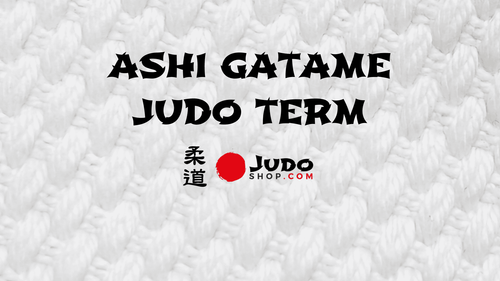
Ashi Gatame - Judo Term Explained
Ashi Gatame is a Judo technique referring to a kansetsu-waza (joint lock) where one uses their legs to immobilise ...
-
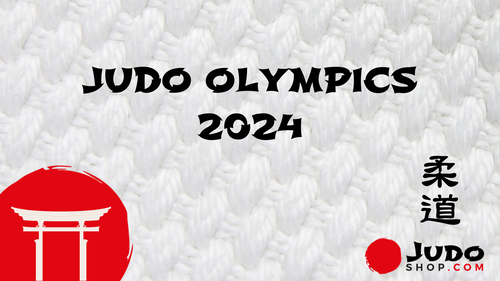
Judo Olympics 2024: Highlights, Athletes, and Schedules
Judo Olympics 2024 enthusiasts, mark your calendars! From July 27 to August 3, the Grand Palais Éphémère near the Eif...
-
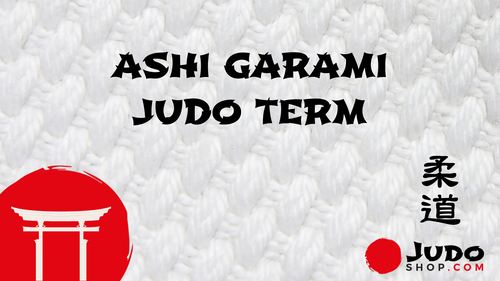
Ashi Garami - Judo Term Explained
What does "Ashi garami" mean in Judo? "Ashi garami" (足緘) is a Japanese term used in Judo that literally translates t...
-
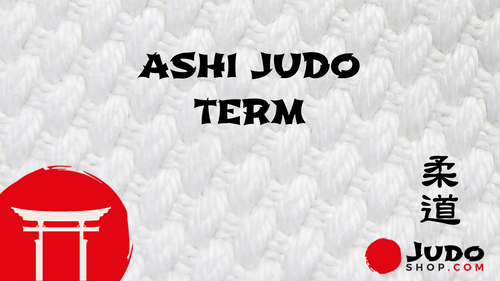
Ashi - Judo Term Explained
Ashi is term in Judo, referring to a leg or foot and category of judo techniques designed to unbalance and throw an ...
-
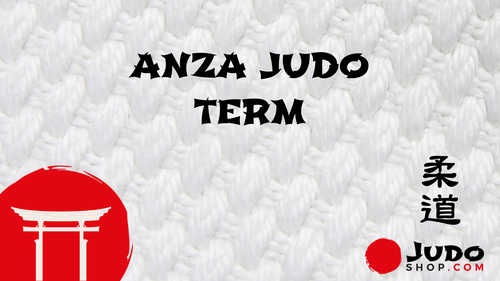
Anza - Judo Term Explained
The term Anza in Judo (安座) embodies a significant practice beyond merely sitting; it signals a deep respect and disc...
-
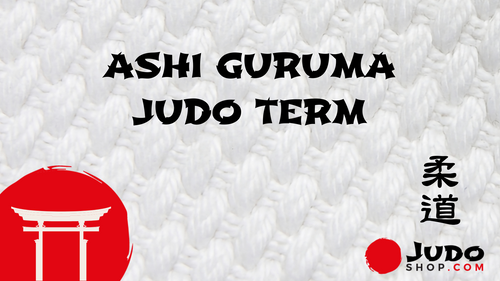
Ashi Guruma - Judo Term Explained
Ashi Guruma is a Judo term rooted in the martial art of Judo, which translates from Japanese as 'leg wheel'. This ju...
-
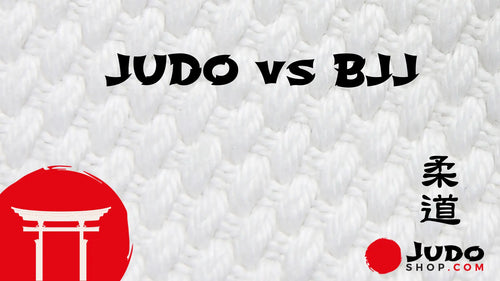
Judo vs BJJ? Of course Judo! Judo is better!
Welcome to Judoshop.com, the premier destination for judo enthusiasts worldwide. Here, we cater to beginners and vet...
-
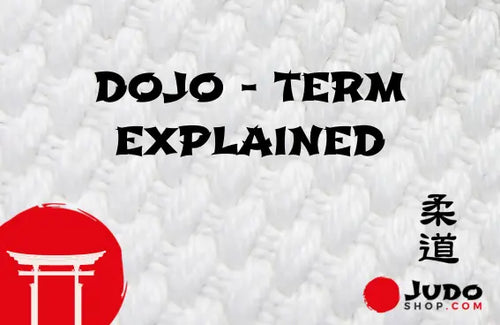
Dojo Meaning (updated 2023)
Dojos, places of immersive learning and meditation, hold great significance in martial arts. Derived from the Japane...
-
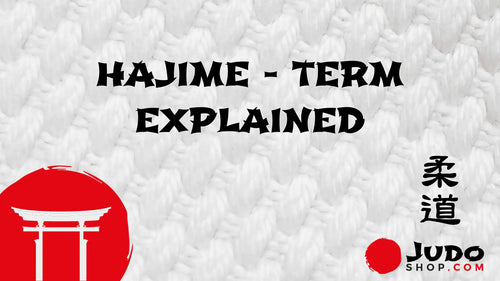
Hajime - Judo Term Explained
Ready to learn about Hajime in judo?It's all about using throws, pins, and joint locks on the mat. With the command ...
-
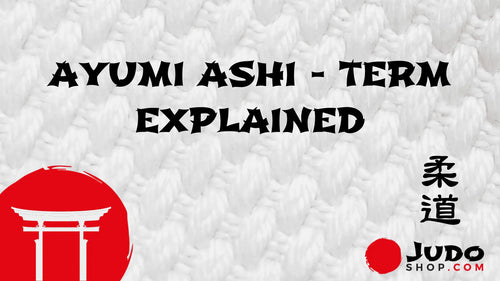
Ayumi Ashi - Judo Foot Work Explained
Are you ready to step into the world of Judo and master the art of Ayumi Ashi - 歩み足? This fundamental footwork techn...
-
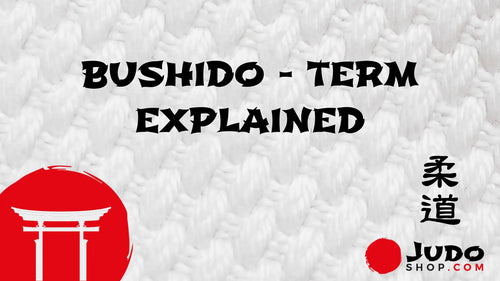
Bushido Explained
Bushido, the traditional code of ethics followed by samurai warriors in feudal Japan, is a subject that fascinates ...
-
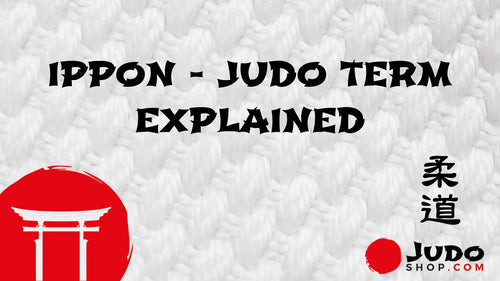
Ippon - Judo Term Explained
Imagine stepping onto the mat and feeling the adrenaline rush through your veins. In the world of judo, one ultimate...
-
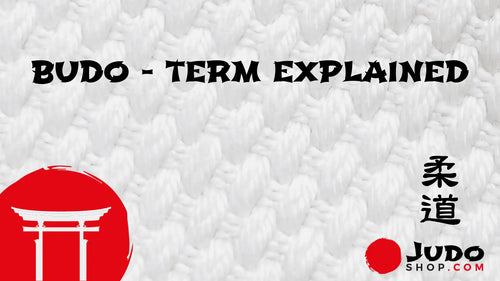
Budo - Term Explained
In a world full of chaos and conflict, one finds solace in the ancient art of budo. Contrary to popular belief, budo...
-
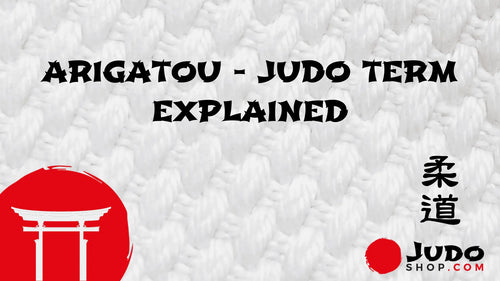
Arigatou - Judo Term Explained
Do you ever wonder about the true meaning behind the Japanese word 'Arigatou'? Well, wonder no more! 'Arigatou' is a...
-
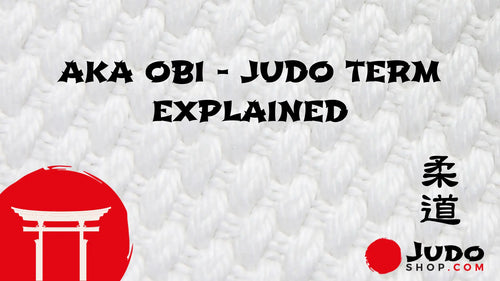
Aka Obi - Judo Term Explained
The aka obi, a red belt worn in Judo, is a prestigious symbol of expertise. Typically reserved for those holding a 9...
-
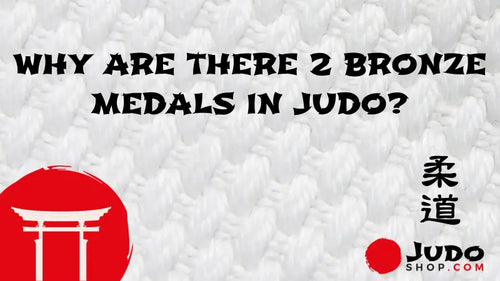
Why Are There 2 Bronze Medals In Judo
Judo is a unique sport that gives two bronze medals in each weight class. Many people wonder why this is done. To fi...
-
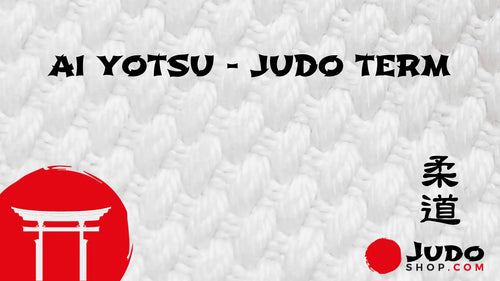
Ai Yotsu - Judo Term Explained
In the world of Judo, a term holds immense significance - Ai Yotsu. This grip, characterized by an intense and intim...
-
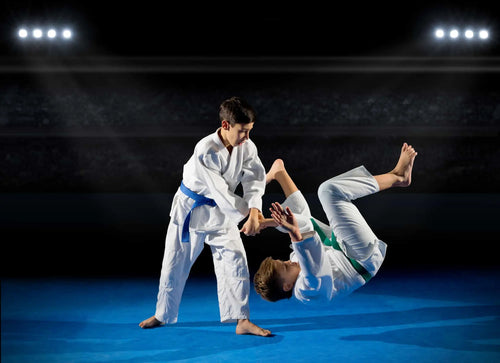
Is Judo Dangerous - Unveiling the Shocking Truths Behind this Ancient Martial Art
With its powerful throws and complex grappling techniques, one might wonder, "Is judo dangerous?" Yes, judo can po...
-

Is Judo The Toughest Sport - Unraveling the Grit and Grace of the Gentle Way
Judo, known as the Gentle Way, may seem like a paradoxical name for a sport, but don't let that fool you. While Ju...
-

Judo Terms - A Complete List of Judo Terms
Judo terms are the foundation of this martial art, and our collection is here to help both new and experienced judok...
-

English to Japanese Kanji and Hiragana translations
Are you looking for an English to Japanese Kanji translation? Here you can find more than 30 examples of Kanji and ...




























